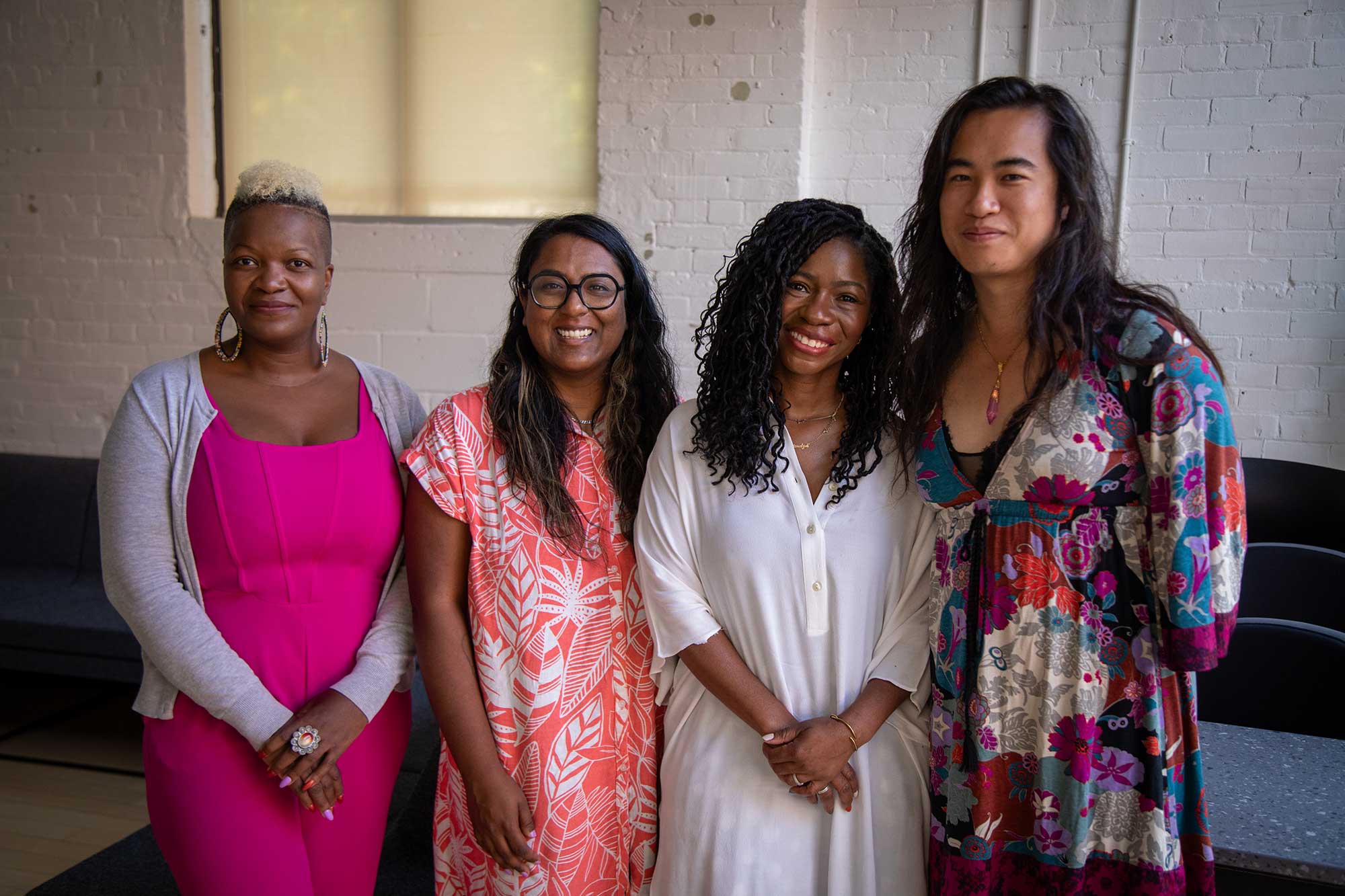Called “Transformative Leadership for Polarized Times,” the in-person, half-day workshop focuses on how to create space for ideological social and political differences between individuals and groups. While differences of opinion are always present, it has been particularly challenging for post-secondary institutions over the last several years as complex and challenging events around the world and in Canada have captured immense public attention and impacted communities. With a fundamental responsibility to ensure respectful inclusive discourse and freedom of expression, academic institutions have been at the center of many of these debates and demands for change. As a result, the learning and work environment has at times become more polarized.
The workshop was piloted in February 2024 for 25 leaders. Demand was so high that additional sessions were added. Now, over 70 administrative leaders, deans, directors and managers have attended. The specialized training was conceived by Jennifer Grant, Associate Vice-President, Office of Anti-Racism, Equity and Human Rights Services (OAREHRS) and coordinated by Ana Mateus and the OAREHRS team.
“As leaders and educators, it can be difficult to know how to respond when challenging conversations arise with students, staff or colleagues,” Grant said. “Through these sessions, we hope to create a space where leaders can engage in open dialogue, support one another, and learn together. It's also an opportunity to challenge ourselves to reflect on our leadership practice and build new skills needed to approach difficult situations with compassion, curiosity, and courage—qualities that are essential for creating safer, more respectful environments.”
(left-right): Ana Mateus, Manager, Anti-Racism, Equity and Inclusion; Kavita Bissoondial, external facilitator; Jennifer Grant, Assistant Vice-President, Anti-Racism, Equity and Human Rights; and Kai Cheng Thom, external facilitator.
Making the invisible ‘visible’
Thom and training partner Kavita Bissoondial use a training method called Processwork, a style of depth psychology-based facilitation that was developed by psychologist Arnold Mindell. Mindell coined the concept of "deep democracy," which enables all perspectives to be heard in a group and allows a leader to approach the resulting tension with confidence. The concept of "deep democracy" has been further developed and applied in academic, corporate, and community settings in over 20 countries. One offshoot of this concept is Lewis Deep Democracy, which has been used to support the shift from apartheid to new democracy in South Africa.
Thom refers to the concept of bringing together differing perspectives as "lowering the waterline” to be able to have inclusive conversations.
“When a leader carefully lowers the waterline, the invisible can be made visible. In group dynamics, the invisible is often the minority perspective,” Thom said. “It is important to not go too deep too fast with vulnerabilities and tensions that may be present. This helps to build trust and create safety for people to voice concerns and ideas.”
Research indicates that psychologically safe workplaces – where employees can freely express their opinions, speak difficult truths, and raise concerns – are crucial for achieving higher performance and retaining diverse top talent. Such environments are essential for employee well-being and organizational success. This approach benefits us all.
“The training was beyond my expectations”
For attendee Sarah Miller, Manager of Learning Operations in the People & Culture division, the workshop was beyond what she expected.
“I was quite skeptical walking into the room because I have been to similar training in previous workplaces. Those sessions over promised and underdelivered on the complexity and nuance of addressing conflict,” said Miller. “With this GBC workshop, I was blown away. It was beyond my expectations.”
She has already applied the waterline framework to her own work with GBC employees. Miller used the tools as a group “temperature check” to determine how individuals were feeling at the start of meetings.
“The activity really engages people and allowed us to slowly get to see each other as actual humans. That allows you to see below the surface of what might be unspoken and get more comfortable with it as a group.”

